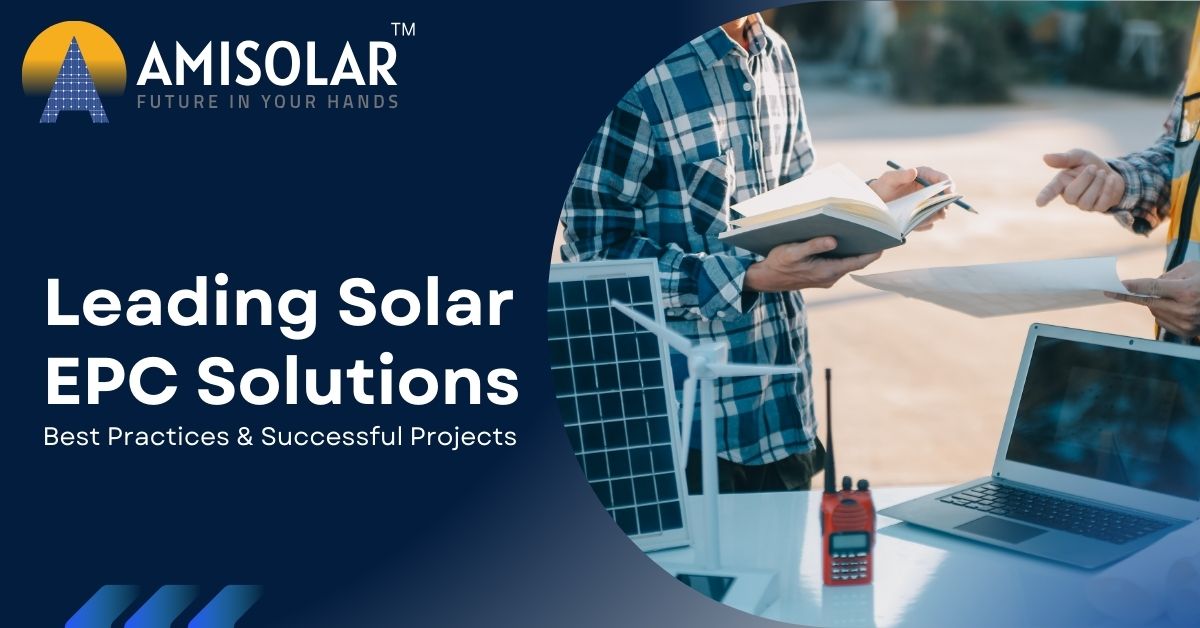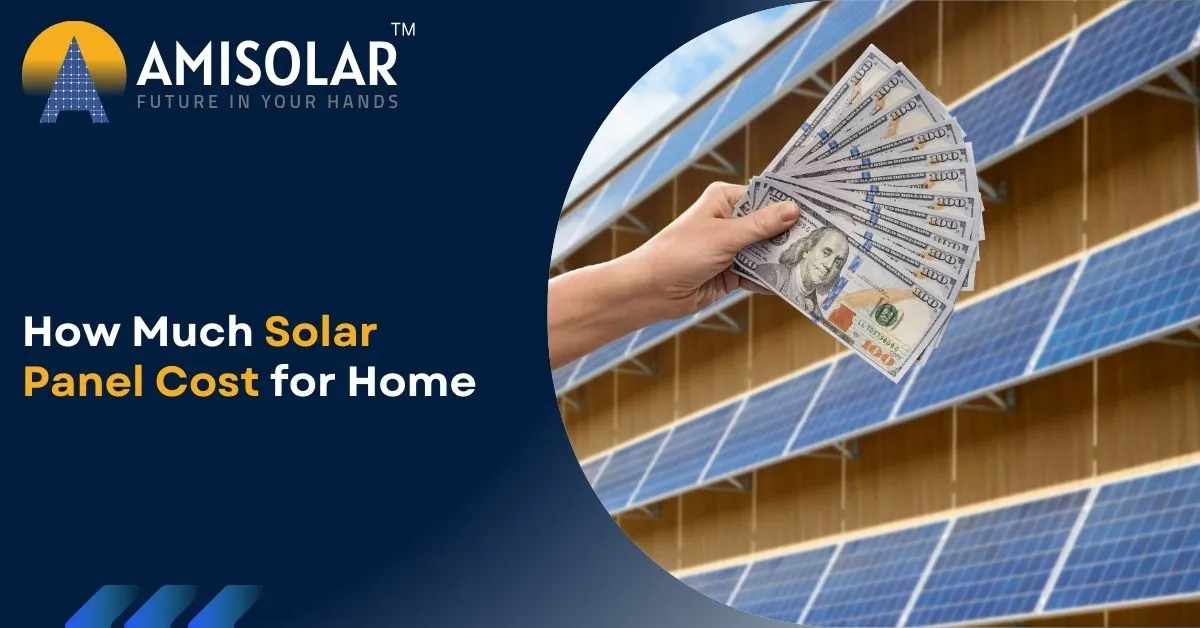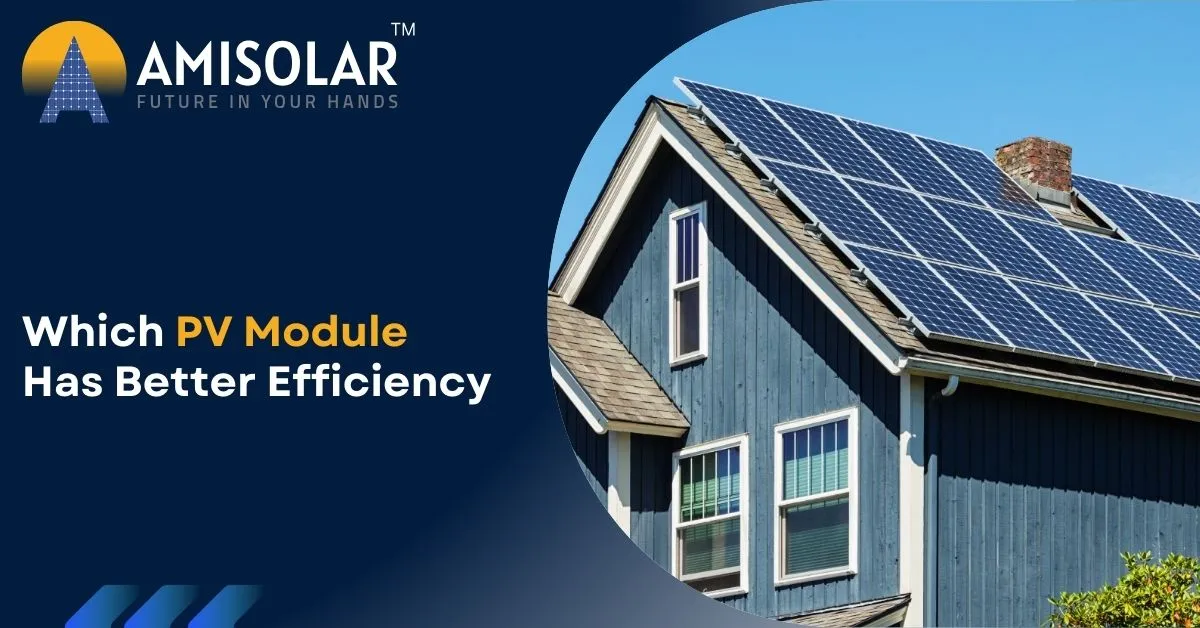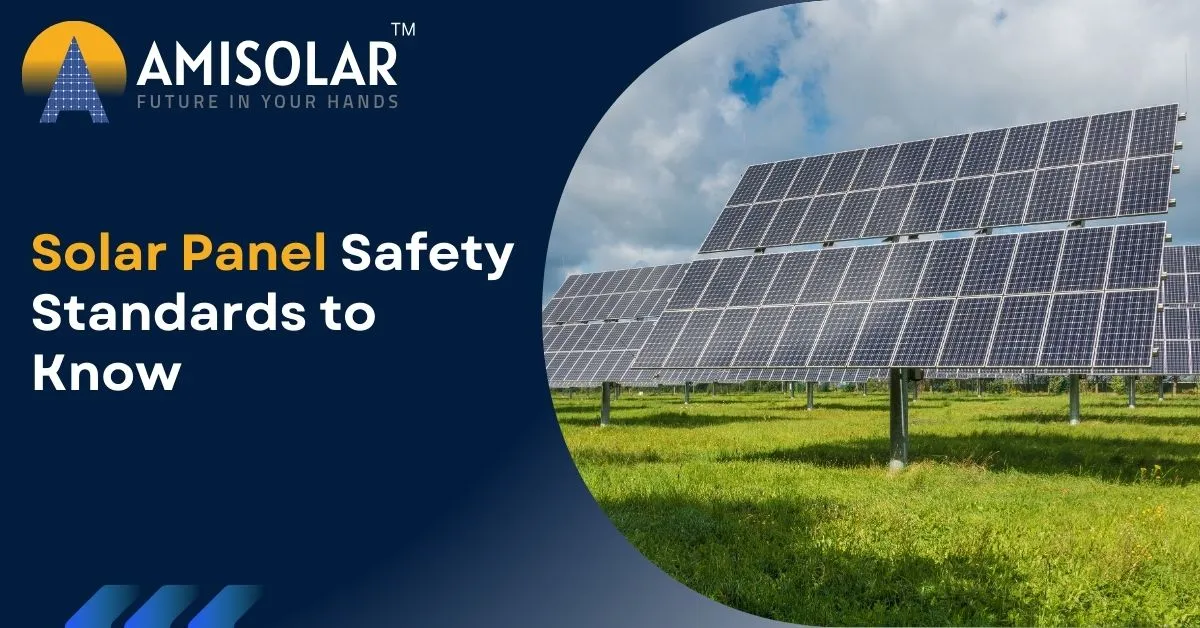As energy prices rise and concerns over the environment grow, many homeowners are turning to…

Introduction to Solar EPC Solutions
Solar EPC (Engineering, Procurement, and Construction) solutions play a pivotal role in the adoption and success of solar energy projects worldwide. This blog delves into the best practices and showcases successful projects in the solar industry, highlighting the expertise of Amisolar, a prominent solar EPC company based in India.
Understanding Solar EPC Solutions
Solar EPC encompasses the entire process of designing, procuring materials for, and constructing solar power plants or installations. It integrates engineering expertise with project management to ensure efficient execution and optimal performance of solar energy systems.
Best Practices in Solar EPC
Detailed Project Planning
Effective project planning is fundamental to the success of any solar EPC project. Amisolar excels in conducting thorough site assessments and feasibility studies, which are crucial for identifying optimal locations, assessing solar irradiance levels, and planning the layout of solar panels for maximum energy yield.
Quality Component Selection
Selecting high-quality components is essential to the longevity and performance of solar installations. Amisolar prioritizes the use of premium solar panels, inverters, mounting structures, and other components that are durable, efficient, and backed by reliable warranties. This ensures that the solar systems not only perform optimally but also require minimal maintenance over their lifespan.
Skilled Construction and Installation
Amisolar employs experienced engineers and technicians who are adept at managing the construction and installation phases of solar projects. They adhere to strict safety protocols and construction standards to ensure the integrity of the solar installations while meeting project timelines and budgetary constraints.
Robust Testing and Commissioning
Thorough testing and commissioning are critical steps in the solar EPC process. Amisolar conducts comprehensive tests to verify the functionality, performance, and safety of each solar system before it is commissioned for operation. This meticulous approach helps in identifying and rectifying any potential issues early on, ensuring that the solar installations operate efficiently from the outset.
Frequently Asked Questions
What does EPC stand for in the context of solar energy?
EPC stands for Engineering, Procurement, and Construction. In solar energy projects, EPC refers to the process of designing, procuring materials for, and constructing solar power plants or installations.
Why is EPC important in solar projects?
EPC is crucial as it integrates engineering expertise with project management to ensure efficient execution, cost-effectiveness, and optimal performance of solar energy systems. It encompasses everything from initial planning to final commissioning.
What are the key stages of a solar EPC project?
The key stages include:
- Feasibility Study: Assessing site suitability and economic viability.
- Design: Planning the layout and technical specifications.
- Procurement: Sourcing materials and equipment.
- Construction: Installing and commissioning the solar system.
- Operation and Maintenance: Monitoring and servicing the system post-installation.
How do solar EPC companies select equipment and components?
Solar EPC companies select equipment based on factors like efficiency, durability, warranty, and compatibility with project requirements. They often choose reputed manufacturers to ensure reliability and performance.
What are the benefits of choosing a professional solar EPC provider?
Professional EPC providers bring expertise in engineering, project management, and regulatory compliance. They streamline the entire process, ensure quality control, and optimize performance to maximize return on investment (ROI).
How long does it take to complete a solar EPC project?
The duration varies based on project size, complexity, and local regulatory approvals. Small-scale projects may take a few months, while large utility-scale installations can take a year or more.
What factors affect the cost of a solar EPC project?
Factors include system size, location, equipment quality, labor costs, and regulatory requirements. Upfront costs may vary, but long-term savings through reduced energy bills and incentives often offset initial expenses.
How can solar EPC projects contribute to sustainability?
Solar EPC projects reduce reliance on fossil fuels, lower greenhouse gas emissions, and promote environmental sustainability. They also offer long-term energy cost savings and energy independence.
What role does maintenance play in solar EPC projects?
Regular maintenance ensures optimal performance and longevity of solar systems. It includes cleaning panels, inspecting equipment, and updating software to maximize energy production and efficiency.
How can businesses or individuals get started with a solar EPC project?
Start by consulting with a reputable solar EPC provider. They will assess your energy needs, conduct site evaluations, provide customized solutions, handle all aspects of project execution, and support you throughout the project lifecycle.
Conclusion
Amisolar, with its robust expertise in solar EPC solutions, continues to drive innovation and sustainability in the renewable energy sector. By adhering to best practices in project planning, component selection, construction, and testing, we ensure the successful implementation of solar projects that deliver reliable and efficient energy solutions.
For businesses, industries, and individuals looking to harness the power of solar energy, partnering with Amisolar guarantees access to cutting-edge technology, expert engineering, and personalized solutions tailored to meet specific energy needs. Embracing solar EPC solutions not only promotes environmental sustainability but also offers long-term economic benefits through reduced energy costs and enhanced operational efficiency.


